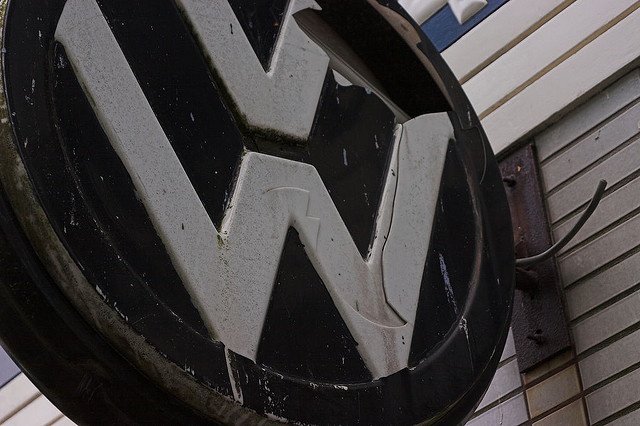The Federal Trade Commission (FTC) sued Volkswagen Group of America (VGoA) on Tuesday, alleging that VGoA deceived American consumers with its “Clean Diesel” ad campaign. The FTC charged that "Super Bowl ads, online social media campaigns, and print advertising,” targeted environmentally conscious consumers, when in reality, Volkswagen’s Jettas, Passats, Golfs, and other diesel vehicles were the opposite of environmentally conscious.
Volkswagen Group was charged with a Notice of Violation from the Environmental Protection Agency (EPA) in September, alleging that the automaker had installed so-called defeat devices, or illegal software, on its 2009-2015 diesel cars that made them emit up to 40 times the amount of nitrogen oxide (NOx) as is legally allowed under normal driving conditions. The cars had been certified by the EPA because during EPA lab tests, VW’s software would sense that the car was being tested in a lab and let the emissions control system work properly under those conditions.
Volkswagen later admitted that up to 11 million diesel vehicles were equipped with the software, prompting investigations in the US and Europe. The Department of Justice sued VW Group in January, and the company has been in ongoing negotiations with the EPA and California’s air regulator to find a fix for the cars that would put them in compliance with the Clean Air Act.
This latest complaint from the FTC does not specify how much the commission is seeking, but in a press release the commission notes that VGoA had sold or leased more than 550,000 diesel vehicles for an average price of $28,000, "based on false claims that the cars were low-emission, environmentally friendly, met emissions standards and would maintain a high resale value." (This complaint does not include the handful of diesel Porsches on which Volkswagen AG, the umbrella company above VGoA, also installed defeat devices, but it does include Audis sold through VGoA.) A press release from the FTC states that it will seek compensation for VGoA customers.



 Loading comments...
Loading comments...
